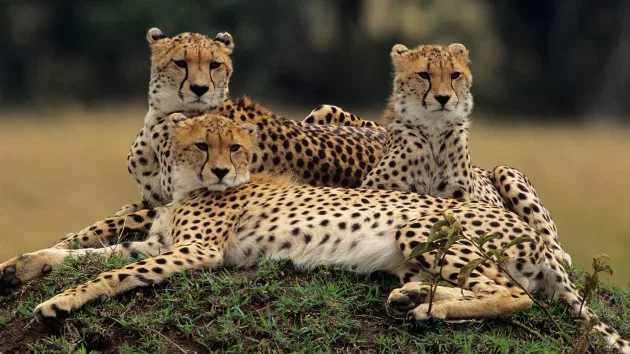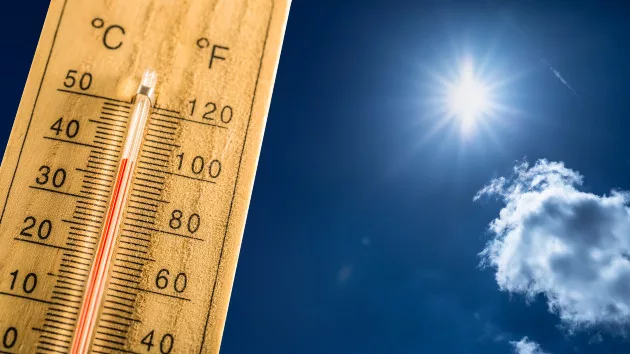
(NEW YORK) — Even the fastest animal in the world can’t outrun the effects of climate change, according to experts.
Cheetah populations are especially vulnerable to rising temperatures because hotter days are forcing them to behave more nocturnally, putting them in greater competition with other predators such as lions and African wild dogs, according to a study published in the journal Biological Sciences on Wednesday.
Researchers from the University of Washington investigated the impacts of temperature on the activity timings and overlaps between four species of large carnivores in Africa, including lions, leopards, cheetahs and African wild dogs.
They found that temperature shaped species activity patterns, making most species more nocturnal and less active as temperatures increased, Kasim Rafiq, a wildlife biologist at the University of Washington and lead author of the study, told ABC News.
The most significant shift was in cheetahs, a typically diurnal species — or one that spends its awake hours during the day — the researchers said. Cheetahs showed the most significant shift towards nocturnality in warmer conditions, leading to increased overlap with other carnivores.
In 2011, the researchers placed high resolution GPS tracking collars on the animals and were able to look at how temperature shifts were impacting their activity over a period of time, Rafiq said.
The data showed that in times of higher temperatures, cheetahs, which tend to be more active during the day, started to shift their activity into periods where there is more overlap with lions, which they would tend to avoid under normal situations, Rafiq said.
“The reason for that is because we think it’s just too hot for them to be active during the daytime hours, and so they become more nocturnal, the same way people do in some countries where they try to avoid the midday heat,” he said.
This is problematic because, lions, cheetahs, leopards and African wild dogs occupy the same area and sometimes eat the same foods, but they don’t always get along with each other, Rafiq said.
The bigger species, such as lions, tend to dominate the smaller species and will injure or kill them, Rafiq said. If a cheetah makes a kill and a lion comes across them, the lion will steal the food from them, he said.
The establishing hierarchy shows how climate change is forcing the smaller predator species to adjust their behaviors in order to avoid the larger species “because they’re just not competitively strong enough,” Rafiq said.
While there have been many studies that look into how climate is impacting species, few have been done on larger species, especially big cats, mostly because it is extremely difficult to collect the data needed to make those determinations over a long period of time, Rafiq said.
“It’s just a very logistically challenging thing to do,” he said.
The Botswana Wildlife Conservation, an organization aimed at protecting vulnerable wildlife species, has been collecting data on large carnivores for more than 30 years, Rafiq said.
Research on how climate change will affect species in the future is currently a “hot topic,” Rafiq said, adding that the Abrams Lab at the University of Washington is currently studying global warming impacts on other large mammals such as whales, mountain lions and deer as well as penguins in Argentina.
Copyright © 2023, ABC Audio. All rights reserved.




